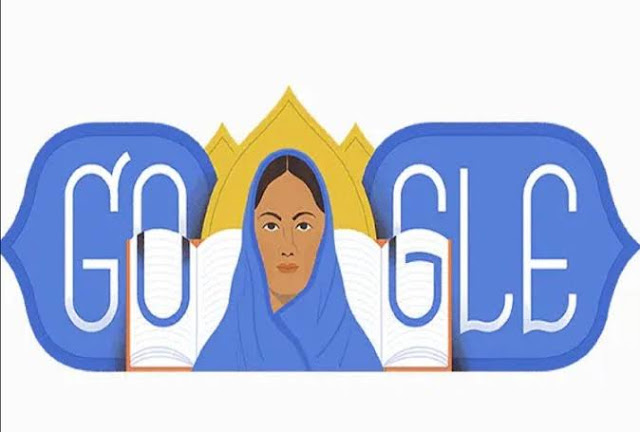Remembering Fatima Sheikh, The First Female Muslim Teacher of India
Rutba Iqbal / Awaz e Khwateen
Let's talk about the woman who started the Beti Padhao campaign of the 19th century.
Her legacy cannot be forgotten, she paved the way for millions of girls to get educated. Called India's first Muslim teacher, Fatima Sheikh was born, by major accounts, in 1831 in Maharashtra's Pune. She grew up at a time when education was more or less dominated by men, with fewer or no opportunities for women education. She began in earnest and started teaching at an all-girl's school in the 1840s. Sheikh fought all odds and resisted the conservative society of those days, focusing on providing education to women of all hues and castes.
Largely overlooked, Sheikh's contribution to India's education reforms needs to be widely discussed and applauded. Google, on January 9, paid rich tributes to Indian educationist Fatima Sheikh with a doodle on its homepage. The event coincided with the reformist's 191st birth anniversary. But what did Fatima Sheikh do?
She fought conservatives amongst fellow Muslims, urging them to send their daughters to schools. She also staved off Brahmin groups, pleading with people to educate their children. As a result, Fatima, along with another revolutionary reformist Savitribai Phule, joined a missionary school to train as teachers.
The two women have been at the forefront of reforming education in India and opening the gates of schools for all castes and marginalised Muslims. Their fates have always been closely intertwined - When Savitribai along with her husband Jyotirao Phule were forced out of their homes for their work, they found refuge in the house of Fatima and her brother, Usman.
Interestingly, it was later in the Pune home of Sheikhs that the first all-girls school, Indigenous Library, was established.
Brainchild of the duo, the pedagogy at the Indigenous Library was quite revolutionary at the time. The school didn't focus on religious texts, as was prevalent in those days. Rather, the Phules and Sheikhs stressed on practical learning for girls, focusing on Science, Mathematics and Social Studies.
The hard work of the two revolutionary women was later on display for everyone to see. In just 4 years, the girls' enrollment at the Indigenous Library was 10 times higher than the number of boys studying at any Government school in the area.
Sheikh also taught at multiple schools operated by the Phules at different points of their association. Her drive to teach girls practical education made her an icon, that despite being relegated to the margins, continues to be remembered by all.
Terming Sheikh’s life “historically overlooked,” Google mentioned in its doodle that the Indian government made efforts to highlight her achievement in 2014, by “featuring her profile in Urdu textbooks alongside other trailblazing Indian educators.”
We should learn from her achievements and make sure all kids, despite gender or caste, should get an equal chance at education and development. Only then, can we honor Fatima Sheikh's legacy as a nation and as a community.





Comments
Post a Comment